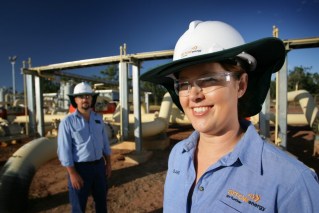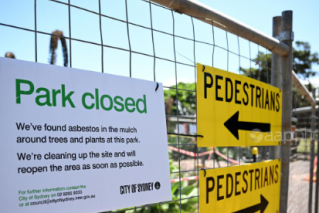Dying to ride: The killer quads making farms our most deadly workplaces
Queensland is leading the nation in quad-bike fatalities – a trend which has helped make farming one of our deadliest occupations, as Brad Cooper reports.


As of this week, five Queenslanders have lost their lives on quad bikes in 2020, compared to three in NSW, two in Victoria and one in WA. That’s according to data reported in the media from AgHealth Australia, part of Sydney University’s School of Rural Health in Dubbo,
Queensland also accounts for seven of the 29 deaths that have occurred on Australian farms so far this year, which AgHealth Australia says is “on trend” with the nation’s six-month average of 32 on-farm fatalities.
The latest figures come after Queensland recorded more non-fatal injuries in rural workplaces than the rest of Australia combined in the first half of 2019, from a review of more than 38,000 media articles by the National Farm Injury Data Centre (NFIDC).
The NFIDC also found Queensland had 13 farm fatalities for the six months, followed by Victoria (seven) and NSW (six).
The overall number of farm deaths was higher than the corresponding period in 2018. Six of the 34 deaths recorded nationally involved a child aged under 15 years.
The main cause of death and injury across the country involved quad bike use.
The grim data confirms agriculture as one of Australia’s most dangerous industries for workers, exacerbated by quad bikes – four-wheeled all-terrain vehicles (ATVs) – which some farmers contend are an essential farm tool if operated correctly.
Professor Tony Lower, a rural health expert who has long advocated for the machines to be overhauled, said it was a common observation among many engineers that quad bikes were inherently unstable.
“It’s often been remarked that a quad bike is more stable upside down than it is on its wheels,” Lower told InQueensland.
“We generally average about 15 quad-bike deaths a year nationally, so at 11 deaths already before June 30 we’re tragically punching above our weight.”
Lower’s evidence and advocacy helped pave the way last year for the Federal Government to insist quad bike manufacturers modify their machines to include components such as roll bars and crush protection to improve rider safety.
Major quad bike manufacturers such as Yamaha, Polaris and Honda have responded by withdrawing their bikes from the Australian market, arguing the safety mechanisms will increase costs and won’t correct instances of operator-error and personal risk-taking.
The retreat from the Australian market has led to a rush on quad bikes from farmers who can’t access stock as supply contracts ahead of the new safety regulations take full effect in October 2021.
KAP leader Robbie Katter held a press conference in Townsville on Monday (June 22) in support of quad-bike dealers who say the installation of Operator Protection Devices (OPDs) will limit consumer choice while holding little improvement for rider safety.
Lower said the manufacturers’ threatened retreat had nothing to do with controlling costs and improving safety, but everything to do with denying their bikes were unsafe and avoiding litigation in their overseas markets, particularly in the highly litigious United States.
“Ultimately what those companies do with their machines is their decision, but if they were serious about safety, they could comply with the new regulations tomorrow if they wanted to,” he said.
“It’s got nothing to do with the product, market conditions or safety here, it’s about setting a precedent where this could be used against them in the US where that country still records anywhere between 500-600 deaths from quad bikes per year.
“Once again these manufacturers are treating farmers with disdain.”
Former Rural Doctors Association of Australia president Dr Adam Coltzau, whose organisation and the National Farmers Federation fought a long campaign to have the new safety measures introduced, said it was sad to see the safety of farmers and their families undervalued by those railing against the protective fittings.
Based in St George in southwest Queensland, Coltzau said he had witnessed the trauma caused by quad bikes first-hand over many years, administering emergency treatment to those seriously injured in on-farm accidents.
He said the safety measures were no different to seatbelts in cars or protective devices on tractors, which have worked to dramatically slash on-farm deaths from where they sat 30 three decades ago above 150 annually .
Workplace safety ‘reset’
The quad bike fallout, which puts a spotlight on the poor safety track record of farming generally, comes weeks after Brisbane business operators were hammered with a $3 million fine and suspended custodial sentences under new industrial manslaughter provisions in Queensland.
Lawyer Matt Smith, head of employment and workplace health and safety at international legal firm DWF, has called the ruling a complete “reset” of the WHS risk landscape”.
“The penalties imposed now become a benchmark for future sentencing, and generally will give the courts greater confidence in awarding higher penalties for WHS breaches,” he said.
The charges stemmed from a workplace accident in May last year when a worker was killed by a reversing forklift at a wrecking yard in Rocklea.
The industrial manslaughter offence by Brisbane Auto Recycling arose by the company negligently causing the death of a worker, by failing to have a system to effectively separate pedestrians from mobile plant, and failing to effectively supervise workers, including the operators of mobile plant.
The two directors of the Rocklea business, Asadullah Hussaini and Mohammad Ali Jan Karimi, after pleading guilty in April 2020, both received sentences of ten months’ imprisonment, wholly suspended for an operational period of 20 months, for offences of reckless conduct under the WHS Act.
Evidence was presented by the prosecution that easily ascertainable control measures would have prevented the exposures to risk and the offences.
Brisbane Auto Recycling was liable for a maximum fine of up to $10 million. The company’s directors, as corporate ‘officers’ were liable for a penalty of up to $600,000 each, or five years’ jail.
Smith said all corporate officers and managers need to continue to ensure that due diligence systems are both carried out carefully and reviewed regularly, in order to avoid the very real risk of large fines or potential custodial sentences for individuals for serious incidents and fatalities in the workplace.
“This also includes farms,” he said. “There is no special dispensation for people who operate a farm as a place of business.
“The same WHS laws that apply to workplaces in an industrial sense also apply to farms and the expectations of all business operators are exactly the same.”












